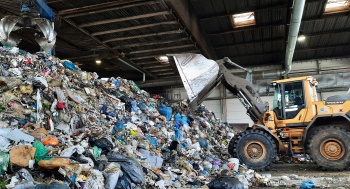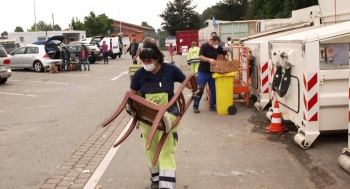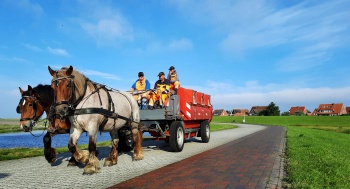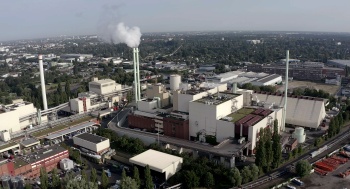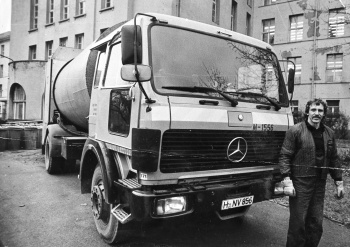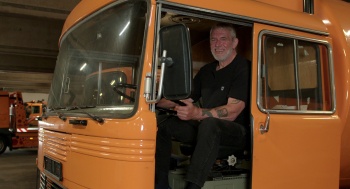ALS DER MÜLL ZUM WERTSTOFF WURDE
- Genre
- Dokumentation
- Format
- HD
- Länge
- 45 min
- Land/Jahr
- DE 2021
- Regie
- Christina Georgi
Jeden Tag fallen riesige Mengen Müll an. Waren es Anfang des 20. Jahrhunderts vor allem Asche und Reste von Nahrung, kamen später Baumaterialien, Möbel und Verpackungen dazu. Seit 120 Jahren kümmern sich die Städte in Norddeutschland darum, dass der Müll regelmäßig abgeholt wird. Anfangs geschah das noch per Pferd, später dann mit immer moderneren Fahrzeugen. Auf die Frage, wohin mit dem Müll, beschritten die Städte unterschiedliche Wege: Hannover wurde mit seiner „geordneten Deponie“ Vorreiter. Hamburg ließ schon 1896 die erste Müllverbrennungsanlage auf dem europäischen Festland bauen.
Die Dokumentation erzählt die Geschichte der Müllentsorgung in Norddeutschland − von dem „Trudeln“ der schweren Metalltonnen bis hin zum genormten Tonnensystem −, und sie zeigt die Suche nach Lösungen, wie aus Müll Wertstoff werden kann.
When rubbish transformed into reusable material
An enormous amount of rubbish is produced each day. While it was mainly comprised of ash and food remains at the beginning of the 20th century, this was later supplemented by building materials, furniture and packaging. Over the past 120 years, towns in North Germany have taken pains to ensure that rubbish is collected regularly. This was done initially using horses and later with the aid of increasingly modern vehicles. As to the question of how to dispose of their rubbish, the towns in the region followed different paths: Hanover became the forerunner with its “systematically-arranged disposal site”. As early as 1896, Hamburg ordered the construction of the first rubbish incineration plant on the European mainland.
The documentary tells about the history of rubbish disposal in North Germany - from the spinning of heavy metal dustbins to a standardised dustbin system - and reports on the search for solutions regarding the transformation of rubbish into reusable materials.
Buch, Regie/script, director: Christina Georgi
Produktion/production: FILMBLICK Produktion Hannover GbR
Produzenten/producers: Christian Kelm, Damian Schipporeit
Produktionsleitung/production manager: Christian Kelm
Kamera/camera: Marc Henze
Ton/sound: Lars Heindorf
Schnitt/editing: Catja Schlimme
Titel, Grafiken, Colour Grading/title design, graphics, colour grading: Marc Steinicke
Tonmischung/sound mix: Dirk Austen
Sprecherin/speaker: Esther Barth
Mitwirkende/with: Michaela Kiewel, Heyo Onken, Eduard Lüppen, Udo Trommer, Jan Dordel, Ernst Hildebrandt, Gunter Hauzinski, Annette Wiencek
Redaktion/commissioning editor: Joachim Grimm, NDR
Fotos/photos: © NDR/FILMBLICK Hannover
Christina Georgi *1986 in Duderstadt; Studium der Medienwissenschaften, Geschichte und Geografie in Trier und Fernsehjournalismus an der Hochschule Hannover; seit 2013 Fernsehautorin mit Vorliebe für Technik- und Verkehrsthemen
Christina Georgi *1986 in Duderstadt; studied Media Sciences, History and Geography in Trier and TV Journalism at the Hanover University of Applied Sciences; TV author since 2013 with a preference for topics dealing with technology and transportation
Drehorte/locations: Hannover, Wunstorf-Kolenfeld, Pattensen, Baltrum, Westgroßefehn, Osterholz-Scharmbeck, Hamburg
Drehzeit/shooting time: 08/2021-10/2021
Erstausstrahlung/TV premiere: 15.12.2021, NDR-Fernsehen
Förderung/fiancial support: nordmedia - Film- und Mediengesellschaft Niedersachsen/Bremen mbH (Produktion/production)
Information:
FILMBLICK Produktion Hannover GbR
Christian Kelm
Eleonorenstraße 18 (Aufgang 2)
30449 Hannover
Tel.: +49 (0)511-99 99 84 03
E-Mail: kelm@filmblick-hannover.de

